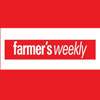





Q: What is the rationale behind the SA authority's implementation of the new, stricter livestock import rules and regulations?

A: You should probably ask Gerhard Schutte of the Red Meat Producers' Organisation of South Africa to answer that question. Last year, the RPO indicated that weaners had been imported to South Africa from Namibia under the wrong legislation. Unfortunately, I'm not up-to-date with this information.
We acknowledge that South Africa has to protect its animal health status since it regained its foot-and-mouth disease free status earlier this year. However, we're of the opinion that the Namibian animal health status is equal to or even better than that of South Africa. The exports of livestock from Namibia are from south of the veterinary cordon fence, which is recognised by the OIE [World Organisation for Animal Health] as "foot-and-mouth-free without vaccination". The animal health status of this area is also recognised by the EU as free of any diseases, which enables us to export livestock products to the UK and Norway.
The last outbreak of foot-and-mouth in the abovementioned area occurred more than 50 years ago and since then, the Namibian authorities have fiercely protected this status. For example, one buffalo was reported in this area in 2013, which led to the closure of the borders until it had been found and tested.
We acknowledge that imports from Swaziland, Lesotho and Botswana might be a risk for South Africa's animal health status. However, Namibia would not like to be put in the same basket than these countries because of the explanation above. In Namibia, no animal can be moved without a permit. In South Africa, by contrast, animals can move freely, even from high-risk areas such as close to the Kruger National Park, to elsewhere in the country.
A: South Africa has been a market for Namibian livestock for the last 70 years. Our production system is built on South Africa being an outlet for our surplus - either live animals or livestock products. To cut off this market is having a devastating effect on Namibian livestock producers. The practical implication is that we immediately sit with about 160,000 weaners, 240,000 goats and about 90,000 sheep that cannot be exported live to South Africa. Many weaner and goat producers are communal farmers whose livelihood depends on this export market.
Our production systems are geared to produce surplus weaners, goats and sheep, and these systems cannot be changed overnight. At present, many farmers are experiencing cash flow problems, and unless an amicable solution is found soon, many might go bankrupt.
A: Two systems are in place - one for livestock destined for feedlots and abattoirs, and the other for breeding stock. With respect to breeding stock that ended up in the national herd of South Africa, we previously had to comply with the import regulations of the country. However, those animals destined for feedlots and abattoirs are to be exported under another permit.
As Namibia sees it, the problem is not so much Namibia's animal health status, but the control of these animals in South Africa. For example, the trucks are sealed in Namibia and issued with the necessary permit, but once they enter South Africa, there's no control over where these seals are broken, or by whom. South Africa claims that these animals end up in their national herd, which is not supposed to be the case. This will be easy to rectify by ensuring that the seals of the trucks are broken at the destination indicated on the permit.
As I indicated earlier, the RPO claims that animals were imported into South Africa under the wrong permit systems and legislation of that country. But I'm not in a position to comment on this. Namibia is a drought-stricken country and we need an outlet during drought. Should the closure of the border have happened last year during the drought, the impact would have been devastating, as we had to export more than the normal number of animals due to the drought.
A: Vaccination of anthrax and brucellosis is compulsory. There's no lung sickness or other sicknesses in the foot-and-mouth-free zone, which is where the livestock exports to South Africa come from. As I've mentioned, the Namibian authorities and producers fiercely protect this animal health status to secure our European, Norwegian and other markets and are therefore surprised that South Africa does not recognise it.
Apart from stringent permit control of movement of livestock within Namibia, we also have to comply with the so-called 40/90-day residence, meaning that any animal slaughtered at any export abattoir should spend at least 40 days on a farm and 90 days in the foot-and-mouth-free zone. No movement of animals or livestock products from north of the veterinary cordon fence, where lung sickness is a threat, is allowed into the foot-and-mouth-free zone.
The maintenance of the veterinary cordon fence is a priority for livestock producers south of the fence. Members of the Namibia Agricultural Union voluntarily inspect the fence and report any damage to the authorities. Should any buffalo, for instance, be sighted south of the fence, it's immediately reported and the borders are closed until the animal has been found.
A: Namibia has an individual traceability system comprising an electronic and visual ear tag for cattle. These are registered on the national data base, NAMLits, and no animal is allowed to move without a veterinary permit and departure details. This means that when an animal is moved, it can be traced to a specific location. In the case of sheep and goats, all animals have to be identified by the registered brand of the owner, either by an ear tag or tattoo.
No movement of smallstock can take place without the necessary veterinary permits. If permits are not returned to the veterinary offices within a certain time, the farms are closed and no permit for movement is issued for the specific farm.
A: Namibia has limited access to countries such as Botswana, Angola and Zambia. In the past, a permit was issued to move only five female livestock units at a time to Angola, but this restriction has since been lifted. However, our infrastructure, such as in terms of transport, is not geared to these countries and it may take some time to develop this market as an alternative to the South African market.
Phone Sakkie Coetzee on 002 646 123 7838 or email him at an.moc.aibimanirga@gve.

Farmer’s Weekly has a long and proud history of serving South Africa’s agricultural industry. Throughout the years, Farmer’s Weekly has been a clarion for South Africa’s farming community and, the magazine remains fully committed to its original undertaking – the advancement of the interests of farmers and their industry.
Go to: www.farmersweekly.co.za